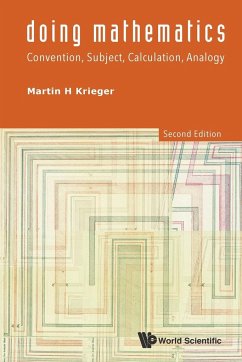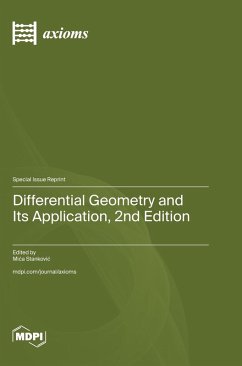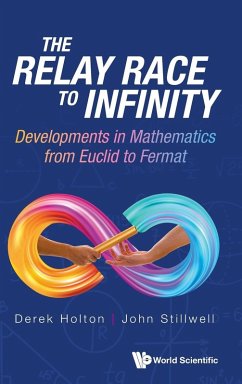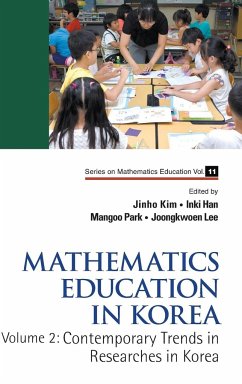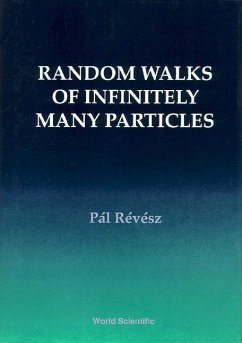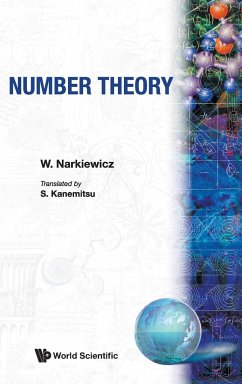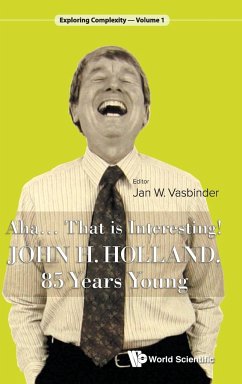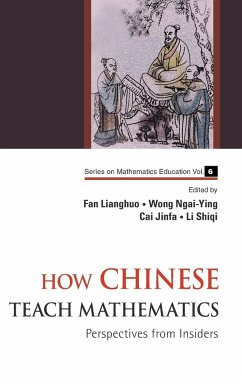
DOING MATHEMATICS (2ND ED)
SUBJECT

PAYBACK Punkte
76 °P sammeln!
Doing Mathematics discusses some ways mathematicians and mathematical physicists do their work and the subject matters they uncover and fashion. The conventions they adopt, the subject areas they delimit, what they can prove and calculate about the physical world, and the analogies they discover and employ, all depend on the mathematics — what will work out and what won't. The cases studied include the central limit theorem of statistics, the sound of the shape of a drum, the connections between algebra and topology, and the series of rigorous proofs of the stability of matter. The many and ...
Doing Mathematics discusses some ways mathematicians and mathematical physicists do their work and the subject matters they uncover and fashion. The conventions they adopt, the subject areas they delimit, what they can prove and calculate about the physical world, and the analogies they discover and employ, all depend on the mathematics — what will work out and what won't. The cases studied include the central limit theorem of statistics, the sound of the shape of a drum, the connections between algebra and topology, and the series of rigorous proofs of the stability of matter. The many and varied solutions to the two-dimensional Ising model of ferromagnetism make sense as a whole when they are seen in an analogy developed by Richard Dedekind in the 1880s to algebraicize Riemann's function theory; by Robert Langlands' program in number theory and representation theory; and, by the analogy between one-dimensional quantum mechanics and two-dimensional classical statistical mechanics. In effect, we begin to see "an identity in a manifold presentation of profiles," as the phenomenologists would say. This second edition deepens the particular examples; it describe the practical role of mathematical rigor; it suggests what might be a mathematician's philosophy of mathematics; and, it shows how an "ugly" first proof or derivation embodies essential features, only to be appreciated after many subsequent proofs. Natural scientists and mathematicians trade physical models and abstract objects, remaking them to suit their needs, discovering new roles for them as in the recent case of the Painlevé transcendents, the Tracy-Widom distribution, and Toeplitz determinants. And mathematics has provided the models and analogies, the ordinary language, for describing the everyday world, the structure of cities, or God's infinitude.





